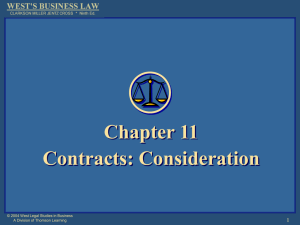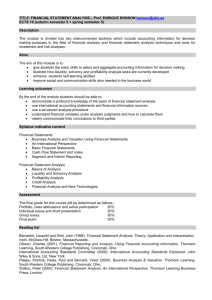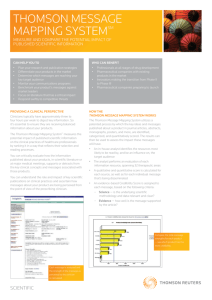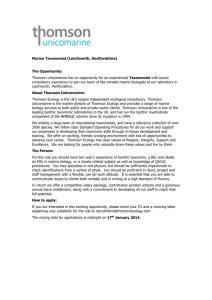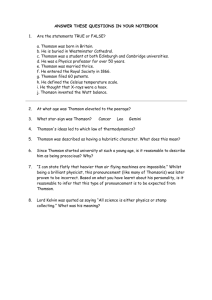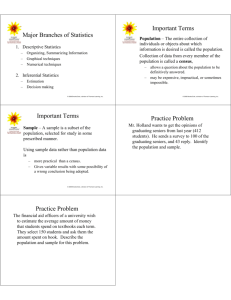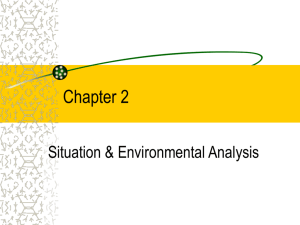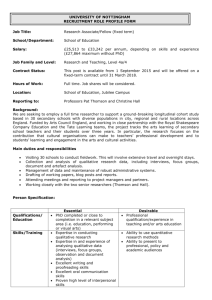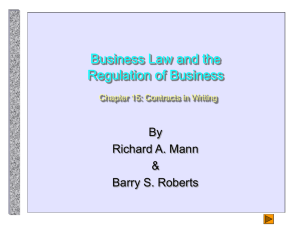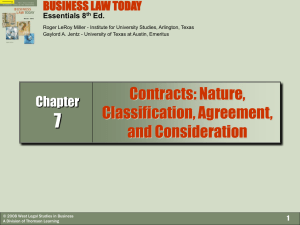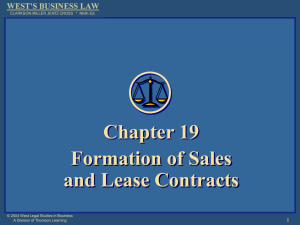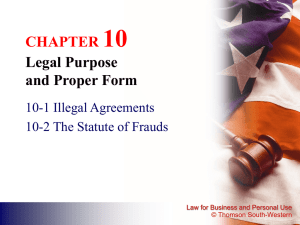Anderson's Business Law 20e
advertisement
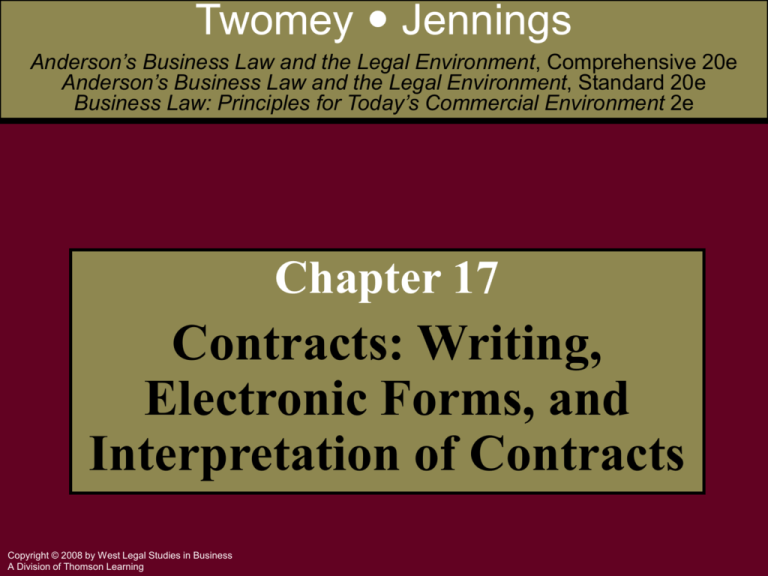
Twomey Jennings Anderson’s Business Law and the Legal Environment, Comprehensive 20e Anderson’s Business Law and the Legal Environment, Standard 20e Business Law: Principles for Today’s Commercial Environment 2e Chapter 17 Contracts: Writing, Electronic Forms, and Interpretation of Contracts Copyright © 2008 by West Legal Studies in Business A Division of Thomson Learning Statute of Frauds • Oral agreements are generally valid and enforceable. • However--certain agreements must be in writing and signed to be enforceable under the Statute of Frauds. Copyright © 2008 by West Legal Studies in Business A Division of Thomson Learning 2 Contracts That Must Be In Writing • An agreement that cannot be performed within one year after the contract is made, • A sale of any interest in real property, • A promise to answer for the debt of another, • A promise by the executor of an estate to pay a claim against the estate from personal funds, … Copyright © 2008 by West Legal Studies in Business A Division of Thomson Learning 3 Contracts That Must Be In Writing • A promise made in consideration of marriage, • The sale of goods for a price of $500 or more. • Local statutes may include other types of contracts, such as a contract between a landowner and a real estate agent. Copyright © 2008 by West Legal Studies in Business A Division of Thomson Learning 4 Contracts and the Statute of Frauds Contracts That Must Be in Writing Exceptions Land Sales Mortgages Options Part Performance Payment and Possession Improvement Contracts Not to Be Performed Within One Year Promise to Pay the Debt of Another Executed Contracts Estates and Personal Representative Guarantor/Surety Promise to Marry Sales of Goods $500 or More Copyright © 2008 by West Legal Studies in Business A Division of Thomson Learning Part Performance Merchant’s Confirmation Memo Specially Manufactured Goods 5 Note or Memorandum • The written contract must be signed by the defendant against whom suit is brought in order for a contract to be enforced. • The signing may be made by printing, stamping, typewriting, or any other means that is intended to identify that party. • E-Signatures can be enforceable under ESign and UETA. Copyright © 2008 by West Legal Studies in Business A Division of Thomson Learning 6 Effect of Non-Compliance • To avoid unjust enrichment, a plaintiff barred from enforcing an oral contract may recover from the other contracting party the reasonable value of the benefits conferred by the plaintiff on the defendant. Copyright © 2008 by West Legal Studies in Business A Division of Thomson Learning 7 Effect of Non-Compliance • To prevent the statute of frauds from being used to defraud a party to an oral contract, the courts by decision have made certain exceptions to the statute of frauds. Copyright © 2008 by West Legal Studies in Business A Division of Thomson Learning 8 Parol Evidence Rule • Prohibits introduction at trial of oral statements to add to/modify or contradict the written agreement that is fully integrated or otherwise complete. • Some courts have liberalized the rule so that parol evidence is admitted when it will aid in interpreting the writing. Copyright © 2008 by West Legal Studies in Business A Division of Thomson Learning 9 Exceptions to Parol Evidence Rule • The parol evidence rule does not bar evidence when the writing is incomplete or ambiguous when: – There are allegations of fraud, duress, mistake or illegality; – A contract has been modified. Copyright © 2008 by West Legal Studies in Business A Division of Thomson Learning 10 Rules of Construction and Interpretation • Intention of the Parties. • Incorporation by Reference. • Contradictory/Ambiguous Terms. –Is there a contract? If so, what are the terms? Copyright © 2008 by West Legal Studies in Business A Division of Thomson Learning 11 Rules of Construction and Interpretation • Implied Terms: Good faith and fair dealing. • Conduct and Custom. • Avoidance of Hardship. – Generally a party is bound by a “bad” agreement, but a court will try to avoid hardship. Copyright © 2008 by West Legal Studies in Business A Division of Thomson Learning 12
